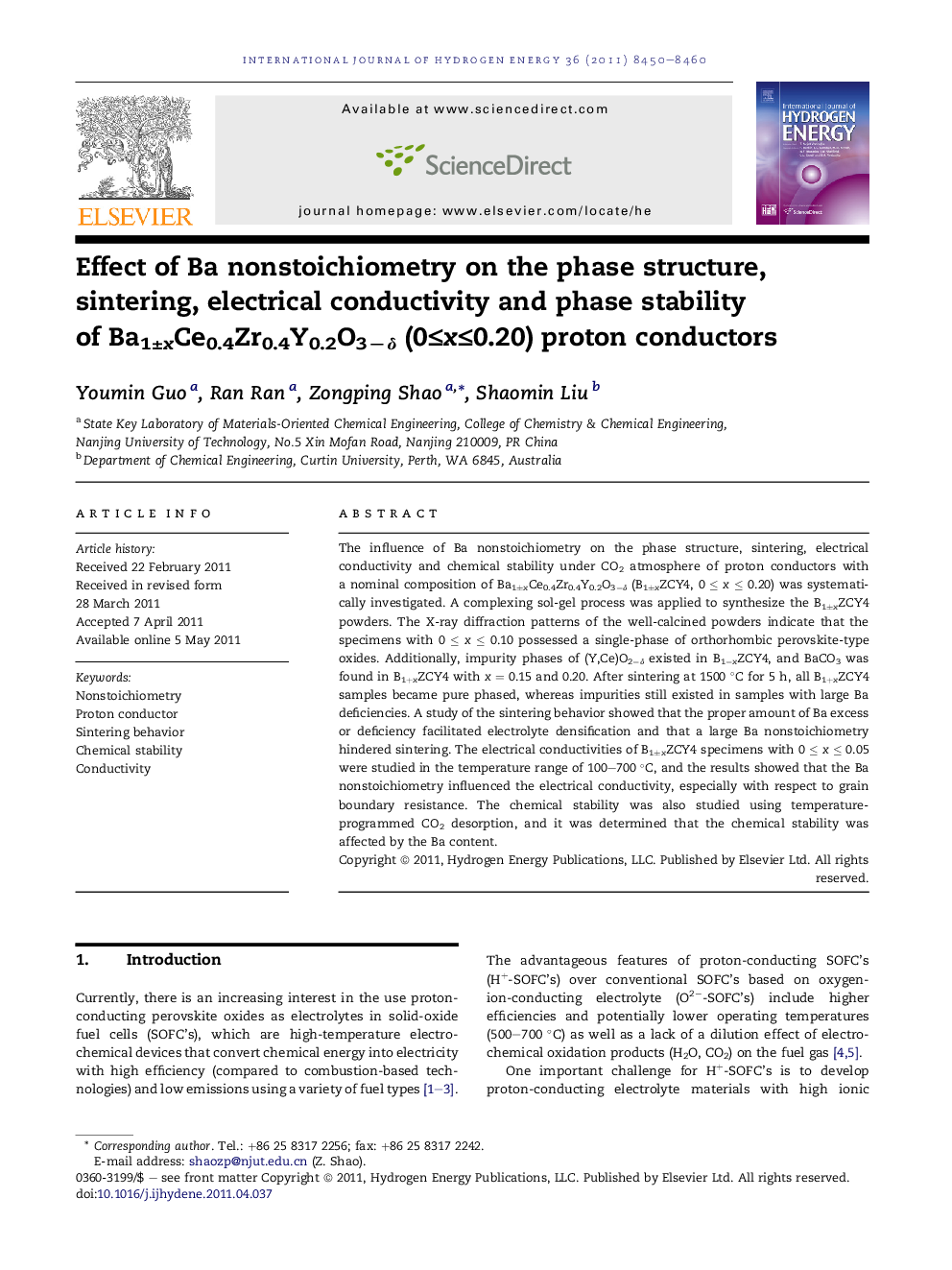| Article ID | Journal | Published Year | Pages | File Type |
|---|---|---|---|---|
| 1279161 | International Journal of Hydrogen Energy | 2011 | 11 Pages |
The influence of Ba nonstoichiometry on the phase structure, sintering, electrical conductivity and chemical stability under CO2 atmosphere of proton conductors with a nominal composition of Ba1±xCe0.4Zr0.4Y0.2O3−δ (B1±xZCY4, 0 ≤ x ≤ 0.20) was systematically investigated. A complexing sol-gel process was applied to synthesize the B1±xZCY4 powders. The X-ray diffraction patterns of the well-calcined powders indicate that the specimens with 0 ≤ x ≤ 0.10 possessed a single-phase of orthorhombic perovskite-type oxides. Additionally, impurity phases of (Y,Ce)O2−δ existed in B1−xZCY4, and BaCO3 was found in B1+xZCY4 with x = 0.15 and 0.20. After sintering at 1500 °C for 5 h, all B1+xZCY4 samples became pure phased, whereas impurities still existed in samples with large Ba deficiencies. A study of the sintering behavior showed that the proper amount of Ba excess or deficiency facilitated electrolyte densification and that a large Ba nonstoichiometry hindered sintering. The electrical conductivities of B1±xZCY4 specimens with 0 ≤ x ≤ 0.05 were studied in the temperature range of 100–700 °C, and the results showed that the Ba nonstoichiometry influenced the electrical conductivity, especially with respect to grain boundary resistance. The chemical stability was also studied using temperature-programmed CO2 desorption, and it was determined that the chemical stability was affected by the Ba content.
► Ba nonstoichiometry influenced the properties of BaZr0.4Ce0.4Y0.2O3−δ oxide. ► Ba-deficient specimens exhibited improved chemical stability and sinterability. ► Ba0.95Zr0.4Ce0.4Y0.2O3−δ might be a good candidate as the electrolyte of H+-SOFC’s.
